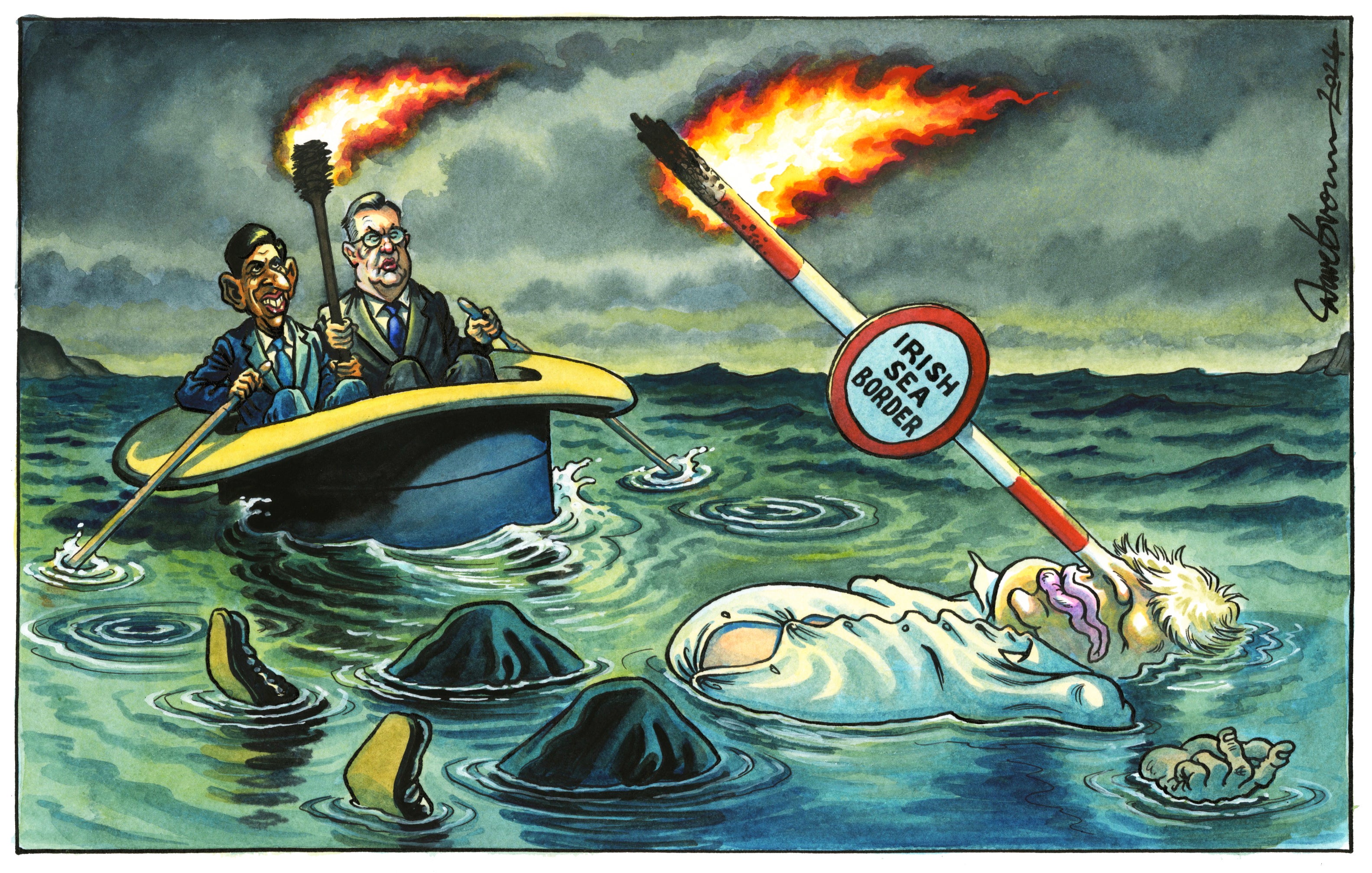The Cameron Declaration: recognising a Palestinian state would be a welcome breakthrough
Editorial: By forcing the question of Palestinian nationhood, the foreign secretary has found a way to turn a crisis into an opportunity – and rediscovered British statesmanship into the bargain

While David Cameron enjoyed mixed reviews for his premiership and then suffered severe reputational damage during his brief career as a lobbyist, as a foreign secretary the now Lord Cameron is now enjoying a metamorphosis into a statesman.
It is indeed the mark of a statesman to know when to make a bold move, and Lord Cameron has certainly done so with his initiative on Palestinian nationhood.
He was admirably clear about his ambition: “We should be starting to set out what a Palestinian state would look like – what it would comprise, how it would work. As that happens, we, with allies, will look at the issue of recognising a Palestinian state, including at the United Nations. This could be one of the things that helps to make this process irreversible.”
To borrow a cliche, Lord Cameron has identified a way to turn a crisis into an opportunity, and he has pursued it with admirable urgency. The war in Gaza demands some kind of progress on a longer-term political settlement in the region, no matter how far-fetched that might feel at this moment.
The interim judgment of the International Court of Justice on the genocide case against Israel adds pressure on the Netanyahu government to change tactics and wind down the war in Gaza, which is not going well for Israel in any case (and the bizarre Israeli raid on a hospital in the West Bank suggests some eccentricity in their military planning and attitude to the Geneva Conventions).
Any de-escalation of the war will help efforts to calm the conflict in the Red Sea and ease the growing tensions between America and Iran. Gaza has always been the key to preventing a wider war in the Middle East and, as Lord Cameron has also said, the civilian casualties are just too high.
Such a winding down may take time, which is all the more reason to make some radical progress in the political and diplomatic theatres. Although an open secret for some time, Benjamin Netanyahu’s recent bald rejection of a two-state solution has forced the pace. Full national status for what is now the Palestinian Authority cannot wait for the peace process to reach its conclusion. The West, too, must now force the pace – and one way to do that is an early recognition of Palestinian nationhood.
If this is delayed any longer, Mr Netanyahu will press on with his style of “one-state solution”, which is unacceptable to the Palestinians and no solution at all – and certainly not the path to making Israel secure and at peace with its neighbours. The scale of settler activity in the West Bank and the disturbingly dehumanising language used by some of Mr Netanyahu’s extremist colleagues (such as calling Palestinians “human animals”) are further reasons to change the “facts on the ground” and to apply the brake to Mr Netanyahu’s ambitions.
It is overwhelmingly likely that Lord Cameron’s announcement has been made with the support of the Americans and other allies, and thus should carry more weight than if it were a narrowly British move. We must assume Joe Biden is backing it, or at least acquiescing. In effect, then, the UK, Rishi Sunak and his foreign secretary may be acting as outriders for the Biden administration.
It is nonetheless an act of leadership, and one that may carry more weight because of the historical baggage that Britain carries in the Middle East. As the last colonial ruler of what was the League of Nations/UN-mandated territory of Palestine, the perceived “granting of independence” by the UK has a strong air of moral authority about it.
It cannot be as momentous for the world as another bold and famous promise made in 1917 by one of Lord Cameron’s predecessors at the foreign office, the Balfour Declaration, but what we might provisionally term the Cameron Declaration is a crucial move in a time of war to try and “win the peace”.
The West hasn’t succeeded in doing that very much in recent decades. We’ve been short of statesmanship.



Join our commenting forum
Join thought-provoking conversations, follow other Independent readers and see their replies
Comments